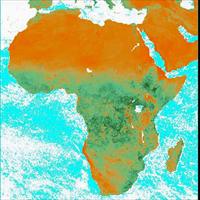Africa Must Develop On Its Own Terms

The just concluded Africa-EU Summit in Lisbon, Portugal, offered African leaders an opportunity to state the African case without ambiguity. President Abdoulie Wade of Senegal, the unofficial spokesman of his peers, said: “I agree with this spirit of creating a new relationship [with Europe], but we have to define what that relationship is.” For too long, Africans have behaved like a lamb to the slaughter, swallowing whole any measure rammed down our throats by our European brothers and sisters.
Although we believe in mutual interdependence, it is now time for Africans to think and act for themselves. It is now time for Africans to stipulate the rules of the game, without having to be subservient to Europeans every time. African leaders did just that when they rejected the Economic Partnership Agreements (EPAs) proposed to come into force on January 1 2008, after the expiration on December 31 of the waiver by the World Trade Organization (WTO) on preferential trade arrangements for developing countries. This is just another subtle attempt to impoverish Africa further. African leaders must never ever have a second thought on their rejection of this pernicious package. They did the right thing for Africa; and we must stick to it, come rain or sunshine.
The Portuguese Prime Minister Jose Socrates underlined this new dawn when he said: “We are here to write an entirely new page in the history of relations between Europe and Africa.” And the Ghanaian president John Kufour was spot on when he pointed out that Africa needs Europe as much as Europe needs Africa. If African leaders are assertive enough, they can undo the existing donor-beneficiary relationship and replace it with it one that is mutually reciprocal. How? Africa needs infrastructure and Europe needs our mineral wealth. If our leaders know what they are doing, they can strong arm Europe to do our bidding in every way.
It is for this reason we disagree with President Thabo Mbeki of South Africa that lack of resources is one of the biggest challenges facing Africa. The biggest trouble facing Africa is bad governance, not lack of resources. All we need at this point in time is a selfless, responsible and visionary leadership to harness the abundant human and material resources across the continent in order to guarantee a better life for the people of Africa.
President Mbeki’s address at the Africa-EU Summit is a variation on the same theme of his address at the 62nd Session of the UN General Assembly on 25 September 2007. In that address, the South African leader called for “massive resource transfers through development assistance, investment, trade, technology transfers and human resource development to poor countries”. President Mbeki’s call is illusory, as experience has shown that Western development aid comes with a sting in the tail.
We note with regret that President Yahya Jammeh, a pan-Africanist of note, was absent at the Africa-EU Summit. President Jammeh has been conspicuous by his absence from similar summits in recent times. He was absent from the 62nd Session of the UN General Assembly, the last AU Summit in Ghana, and the African-Taiwan Summit in Taipei. As an ardent critic of imperialism and unfair world trade practices, President Jammeh should have endeavoured to grace these summits with his presence to propagate his beliefs where they could have had the most impact.
 Back and Next - Back and Next
Back and Next - Back and Next See Also - See Also
See Also - See Also